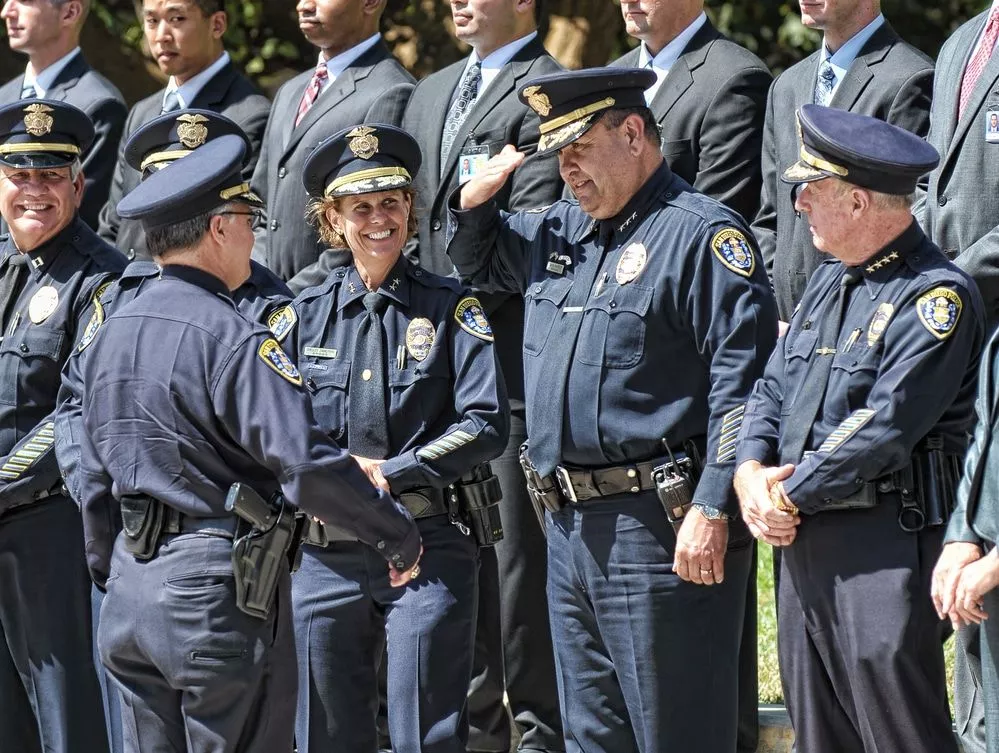Table of Contents
- Why Are Police Officers at an Increased Risk of Alcohol Abuse and Drug Addiction?
- Post-Traumatic Stress Disorder and Drug and Alcohol Addiction
- Treatment Options for Substance Abuse
- What’s Different About an Addiction Treatment Program for a Police Officer?
- How Can Police Officers Reduce the Risk of Substance Abuse and Other Mental Health Issues?
- Addiction Treatment for Emergency Responders
Law enforcement officers face unique struggles, and potentially traumatic experiences are a daily occurrence. As a result, compared to the general population, substance abuse problems are commonplace. While alcohol and drug abuse have traditionally been perceived as a moral failing or lack of self-control, science has come a long way, and we now understand that they’re medical conditions. People usually use drugs and alcohol to fulfill a purpose, such as easing anxiety, soothing emotional pain or unwinding from a high-stress situation.
Police officers and other first responders who struggle with addiction often experience additional guilt and shame because they feel they should be 100% upstanding citizens at all times. This makes them less likely to seek treatment and more likely to hide or deny their symptoms. In this article, you’ll discover why addiction is more common among police officers and find out how our specialist rehab programs can help.
Why Are Police Officers at an Increased Risk of Alcohol Abuse and Drug Addiction?
Being a police officer is one of the most stressful jobs, with the responsibility of protecting society and upholding the law. The main reason police are under constant stress is because their daily work involves being exposed to the dark underside of human nature. Instead of seeing the best in people, individuals in the law enforcement field are disproportionately reminded of the bad things people are capable of.
For officers who had a traumatic childhood or have underlying mental health issues, coping with the daily pressure can be challenging. Because there’s a culture of being tough and strong, admitting you have a problem and seeking help is harder. And the more you deny you have a problem with alcoholism or any kind of substance use, the more of a hold it can take.

Post-Traumatic Stress Disorder and Drug and Alcohol Addiction
Many members of the police force are ex-military, where there’s a significantly increased risk of developing PTSD. But even among police officers who aren’t veterans, the likelihood of developing trauma-induced disorders is higher. This is because the chances of being exposed to a traumatic event, such as domestic violence, murder and abuse, are much higher.
Trauma is the Ancient Greek word for wound, and PTSD refers to the brain experiencing something it can’t process. This leads to the following symptoms:
- Intrusive thoughts
- Avoidant behavior
- Memory loss
- Negative thoughts about the world and yourself
- Isolation
- Irritability and anger
- Loss of interest in hobbies
- Nightmares and flashbacks
- Some people experience total emotional numbness
Drug and alcohol use seems like a viable solution to many of these problems because it can mask symptoms and help with emotional regulation in the short term. However, the consequences of self-medicating with drugs and alcohol ultimately make the condition worse. The only long-term solution to escaping these awful feelings is professional treatment in a calming, peaceful and supportive rehab center.
Treatment Options for Substance Abuse
There’s no one-size-fits-all when it comes to treating law enforcement for drug or alcohol abuse. For some people, residential or intensive outpatient programs are the best course of action, particularly for individuals with co-occurring disorders. However, this means taking time off work, which isn’t always viable. Discreet outpatient programs or day treatment is the most practical and effective solution if you don’t want to or can’t take the time off.
If you have coverage of any kind from a major insurance provider, your treatment is likely covered. We promise to keep your information confidential.
Below is a basic outline of what you can expect at rehab:
- Individual therapy: One-on-one sessions with a therapist allow you to gain a deeper understanding of yourself, why you use substances and how you can make the necessary lifestyle changes to protect yourself against triggers and setbacks.
- Group therapy: Group therapy shines a spotlight on other people’s experiences, helping you understand addiction better and providing an opportunity to speak openly about your feelings.
- Holistic therapy: Addiction treatment can be an intense experience, and holistic sessions help you relax, unwind and approach recovery with a mindful mindset.
- Family therapy: Family members can suffer significantly when someone they love is on active duty, and there’s a good chance they won’t understand the mechanism of drug or alcohol use. Therapy for families helps you communicate, set boundaries and understand each other better.
- Ongoing care: While rehab does a great deal to provide you with the tools to cope with the additional stresses of your job, it’s not a cure for addiction. Recovery requires ongoing care, support and maintenance, with group and individual therapy sessions recommended indefinitely.
What’s Different About an Addiction Treatment Program for a Police Officer?
Police officers experience traumatic events on a regular basis, which means the type of support they require is a little different. Therapists and counselors are informed about the unique way police departments are affected by addiction, and discretion is paramount. Drug addiction, alcoholism and stress go hand in hand, and treatment for police officers takes into account the unique nature of the job.
How Can Police Officers Reduce the Risk of Substance Abuse and Other Mental Health Issues?
Police officers’ mental and physical health is just as likely to be affected by stress as anyone else’s. The job requires a tough exterior and resilient personality, but you’re still human. Both female officers and male officers have a duty to practice self-care and seek therapy when the pressure gets too high. Keep in mind that taking care of your physical health and mental health at the same time is vital. Some tips for staying healthy include:
- Maintain a consistent sleeping pattern
- Avoid highly processed food
- Eat lots of fresh fruits and vegetables
- Perform regular cardio and resistance exercise
- Be affectionate and loving with your family and friends

Addiction Treatment for Emergency Responders
Even if the attitude among other law enforcement officers is to grin and bear the pain of traumatic events, you can break free. Greenbranch Recovery is a safe environment with all the tools, resources and, most importantly, love, to support you through recovery. Contact us today at 609-622-5101 for more information.
